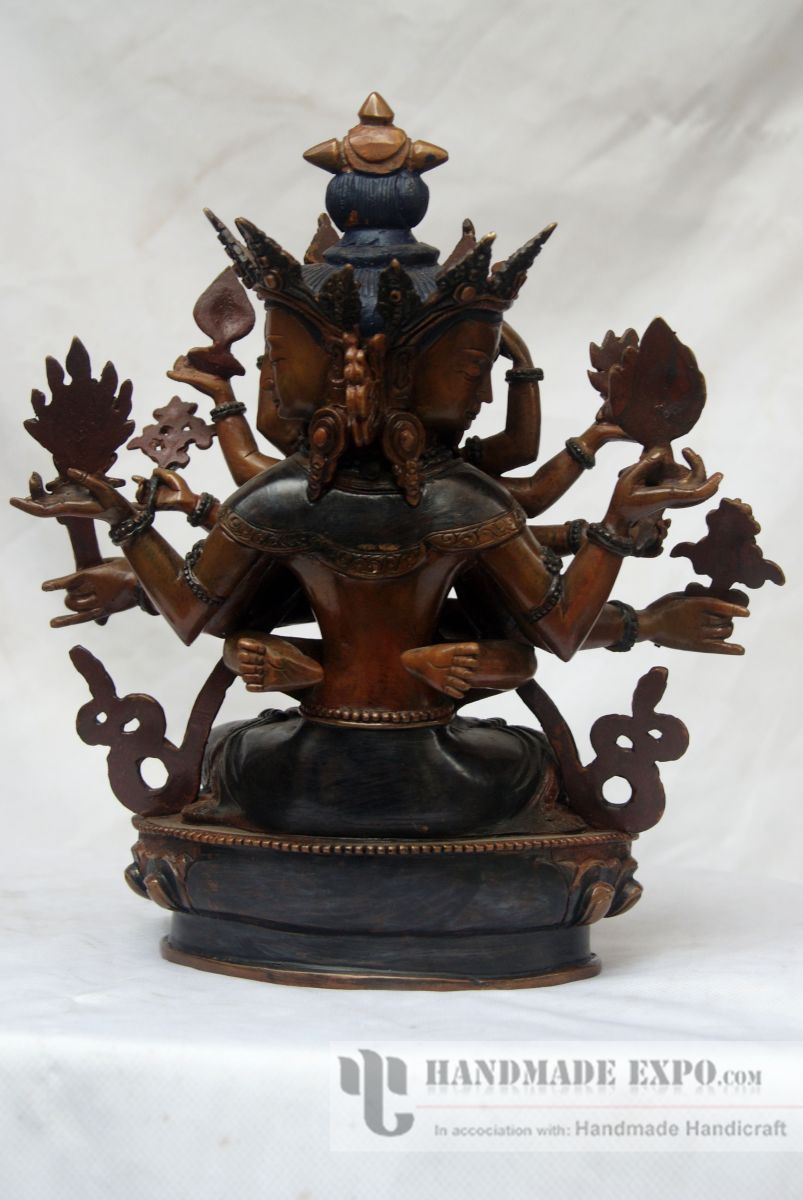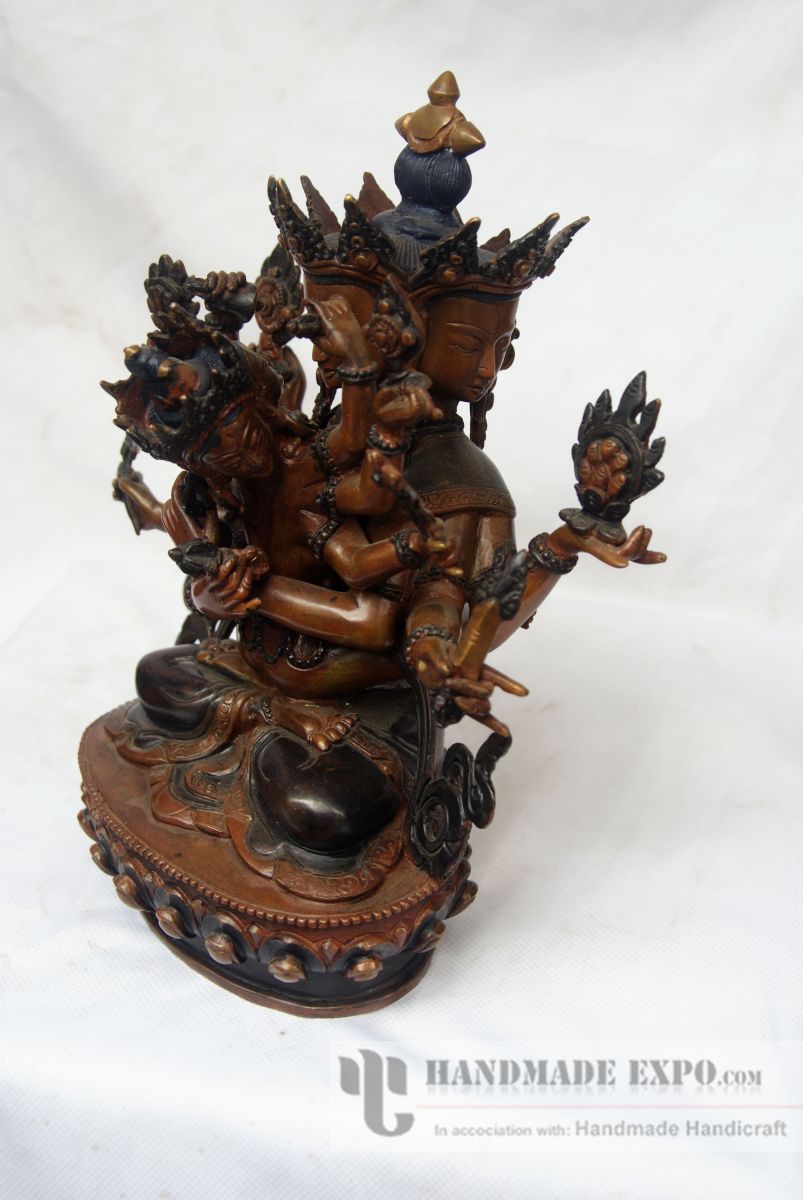Code
HCS2055
Weight
2.8 Kg / 6.17 lbs
Size
Height
23cm (9") Width
20cm (8") Depth
8cm (3") Material
Copper
Availability
Available
Date Added
2008-08-23 10:14:56
Note : We used to sell this product 17 years ago so it may no longer be in our stock.
It is possible that we still have it with our suppliers but the price could be different from before.
Feel free to order. We will verify availability and inform you promptly.
It is possible that we still have it with our suppliers but the price could be different from before.
Feel free to order. We will verify availability and inform you promptly.

Safe Payment
We accept Paypal, Money Transfer, Bank Transfer
Confidence
Protection covers your purchase and personal data.
Worldwide Delivery
We ship Worldwide, except Russia.Shipping cost US$25.2 for upto 0.5 kgs

Hotline
Talk to help line for your question on 9841267335Full Fire Gold Plating
This High Quality Copper Statue Of Guhyasamaja [full Fire Gold Plated] is finished with full gold plating. also known as mercury gold plating or fire gold plating. This traditional technique involves the application of a genuine layer of gold onto the High Quality Copper Statue Of Guhyasamaja [full Fire Gold Plated]. Referred to as mercury gold plating, it is considered the correct and authentic form of gold plating in Nepal. Despite being more expensive than electroplating, this traditional mercury gold plating is gaining popularity again in Nepal. People are drawn to its authenticity, longevity, and the unmatched beauty it brings to the High Quality Copper Statue Of Guhyasamaja [full Fire Gold Plated]. The resurgence of interest in this traditional form of gold plating reflects a growing appreciation for the craftsmanship and cultural heritage of Nepal Read More . . .
This High Quality Copper Statue Of Guhyasamaja [full Fire Gold Plated] is finished with full gold plating. also known as mercury gold plating or fire gold plating. This traditional technique involves the application of a genuine layer of gold onto the High Quality Copper Statue Of Guhyasamaja [full Fire Gold Plated]. Referred to as mercury gold plating, it is considered the correct and authentic form of gold plating in Nepal. Despite being more expensive than electroplating, this traditional mercury gold plating is gaining popularity again in Nepal. People are drawn to its authenticity, longevity, and the unmatched beauty it brings to the High Quality Copper Statue Of Guhyasamaja [full Fire Gold Plated]. The resurgence of interest in this traditional form of gold plating reflects a growing appreciation for the craftsmanship and cultural heritage of Nepal Read More . . .
Lost-Wax System
This Guhyasamaja of High Quality Copper Statue Of Guhyasamaja [full Fire Gold Plated] is made by the process of the Lost Wax system. This is a very complicated, time consuming and historic process of making metal sculptures.Which is why it is sometimes called Precision Casting as well. Hence the sculptures made by this process are comparatively expensive. There are many new, advanced and less time consuming methods of casting metal sculptures available as well. But due to the benefits provided by the traditional lost wax system in quality control and customization, we prefer the Loss wax system over Ceramic molding, or sand casting to make our Guhyasamaja.
Below we have tried to illustrate the process of making a loss wax system statue: Read More . . .
This Guhyasamaja of High Quality Copper Statue Of Guhyasamaja [full Fire Gold Plated] is made by the process of the Lost Wax system. This is a very complicated, time consuming and historic process of making metal sculptures.Which is why it is sometimes called Precision Casting as well. Hence the sculptures made by this process are comparatively expensive. There are many new, advanced and less time consuming methods of casting metal sculptures available as well. But due to the benefits provided by the traditional lost wax system in quality control and customization, we prefer the Loss wax system over Ceramic molding, or sand casting to make our Guhyasamaja.
Below we have tried to illustrate the process of making a loss wax system statue: Read More . . .
Iconography :
Guhyasamāja is one of the most interesting, complicated and important figures in vajrayana buddhism. It combines various important tathagata Buddhas, (Dhayani Buddhas) into one sclupture. It is perdominantly is call Akshobhayavajara which is the form of Akshobhaya buddha. Guhyasamāja is blue-black in color, a form of Akshobhya, one of the five transcendent lords. Akshobhyavajra holds a vajra and bell (ghanta) in his first two hands, and other hands hold the symbols of the four other transcendent lords, wheel of Vairocana and lotus of Amitabha in his rights, and gem of Ratnasambhava and sword of Amoghasiddhi in his lefts.
Origin of Guhaysamajha. :It is said that Guhyasamāja Tantra was taught for the first time by the Shakyamuni Buddha himsself in the form of Vajradhara to Indrabhuti the King of Oddiyana
As with most Tantras, there are different traditions and transmissions. Perhaps the oldest surviving lineage is the Jñānapada Tradition , which goes late 8th century. The most important historically is the Noble Tradition which is based on commentaries attributed to Nāgārjuna, Āryadeva and Candrakīrti.
About Guhaysamaja Tantra :As with most Tantras, there are different traditions and transmissions. Perhaps the oldest surviving lineage is the Jñānapada Tradition , which goes late 8th century. The most important historically is the Noble Tradition which is based on commentaries attributed to Nāgārjuna, Āryadeva and Candrakīrti.
The Guhyasamāja Tantra (Sanskrit; Scripture of the Esoteric Community) is one of the most important scriptures of esoteric Buddhism. In its fullest form, it consists of seventeen chapters, though a separate "explanatory tantra" known as the Appendix Tantra (uttaratantra) is sometimes considered to be its eighteenth chapter. Many scholars believe that the original core of the work consisted of the first twelve chapters, with chapters thirteen to seventeen being added later as explanatory material.
In India, it was classified as a Yoga or Mahāyoga Tantra. In Tibet it is considered an Unexcelled Yoga Tantra (rnal 'byor bla med rgyud). It develops traditions found in earlier scriptures such as the Sarva-tathāgata-tattva-saṃgraha but is focused to a greater extent on the antinomian aspects characteristic of the later Buddhist Tantras. It survives in Sanskrit manuscripts and in Tibetan and Chinese translation.
In India, it was classified as a Yoga or Mahāyoga Tantra. In Tibet it is considered an Unexcelled Yoga Tantra (rnal 'byor bla med rgyud). It develops traditions found in earlier scriptures such as the Sarva-tathāgata-tattva-saṃgraha but is focused to a greater extent on the antinomian aspects characteristic of the later Buddhist Tantras. It survives in Sanskrit manuscripts and in Tibetan and Chinese translation.
Mantra of Guhyasamaja
OM AH VAJRA DHRIK HUM HUM PHAT


![High Quality Copper Statue Of Guhyasamaja [full Fire Gold Plated]](https://handicraftseller.com/uploads/pics/product/thumb/2008/08/2055_7.jpg)
![High Quality Copper Statue Of Guhyasamaja [full Fire Gold Plated]](https://handicraftseller.com/uploads/pics/product/thumb/2008/08/2055_8.jpg)
![High Quality Copper Statue Of Guhyasamaja [full Fire Gold Plated]](https://handicraftseller.com/uploads/pics/product/thumb/2008/08/2055_9.jpg)
![High Quality Copper Statue Of Guhyasamaja [full Fire Gold Plated]](https://handicraftseller.com/uploads/pics/product/thumb/2008/08/2055_10.jpg)
![High Quality Copper Statue Of Guhyasamaja [full Fire Gold Plated]](https://handicraftseller.com/uploads/pics/product/thumb/2008/08/2055_11.jpg)
![High Quality Copper Statue Of Guhyasamaja [full Fire Gold Plated]](https://handicraftseller.com/uploads/pics/product/thumb/2008/08/2055.jpg)
![High Quality Copper Statue Of Guhyasamaja [full Fire Gold Plated]](https://handicraftseller.com/uploads/pics/product/thumb/2008/08/2055_2.jpg)
![High Quality Copper Statue Of Guhyasamaja [full Fire Gold Plated]](https://handicraftseller.com/uploads/pics/product/thumb/2008/08/2055_1.jpg)
![High Quality Copper Statue Of Guhyasamaja [full Fire Gold Plated]](https://handicraftseller.com/uploads/pics/product/thumb/2008/08/2055_3.jpg)
![High Quality Copper Statue Of Guhyasamaja [full Fire Gold Plated]](https://handicraftseller.com/uploads/pics/product/thumb/2008/08/2055_4.jpg)
![High Quality Copper Statue Of Guhyasamaja [full Fire Gold Plated]](https://handicraftseller.com/uploads/pics/product/thumb/2008/08/2055_5.jpg)
![High Quality Copper Statue Of Guhyasamaja [full Fire Gold Plated]](https://handicraftseller.com/uploads/pics/product/thumb/2008/08/2055_6.jpg)


























































 of Guhyasamaja
of Guhyasamaja 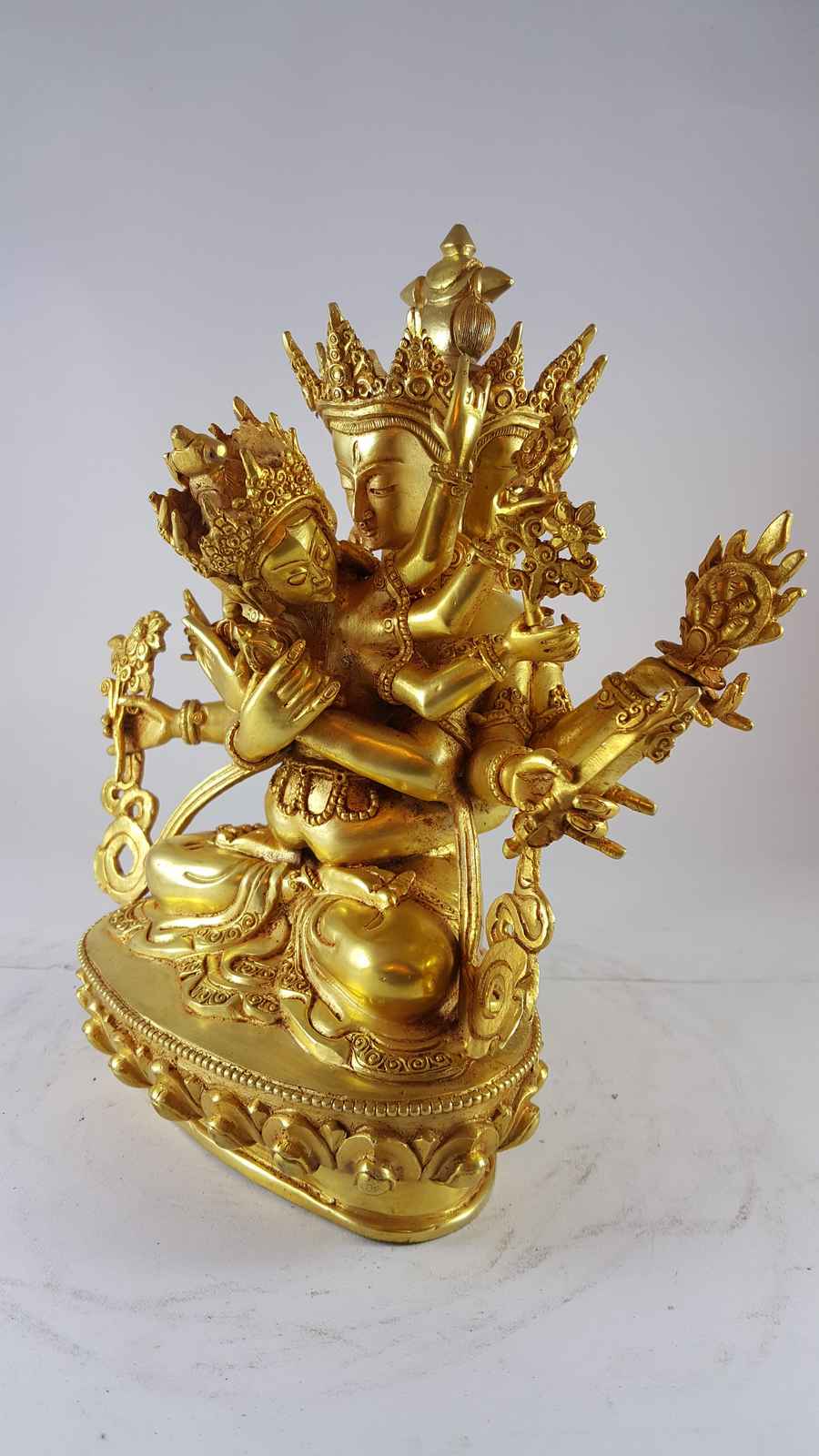 of Guhyasamaja
of Guhyasamaja  Full Fire Gold Plated Statue" title="Rate Manjuvajra Guhyasamaja Statue-
Full Fire Gold Plated Statue" title="Rate Manjuvajra Guhyasamaja Statue- 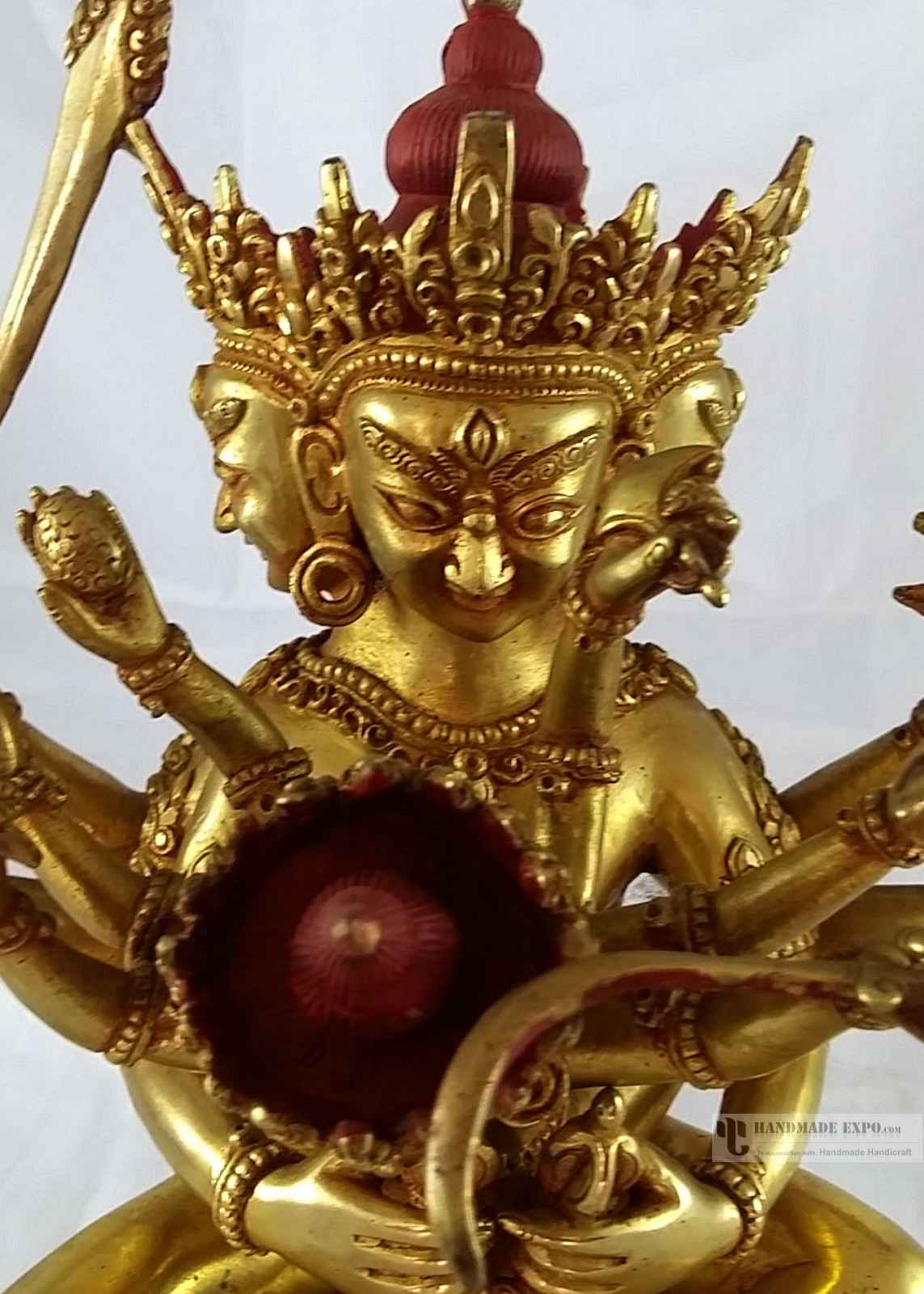 Full Fire Gold Plated Statue" title="Rate Manjuvajra Guhyasamaja Statue-
Full Fire Gold Plated Statue" title="Rate Manjuvajra Guhyasamaja Statue- 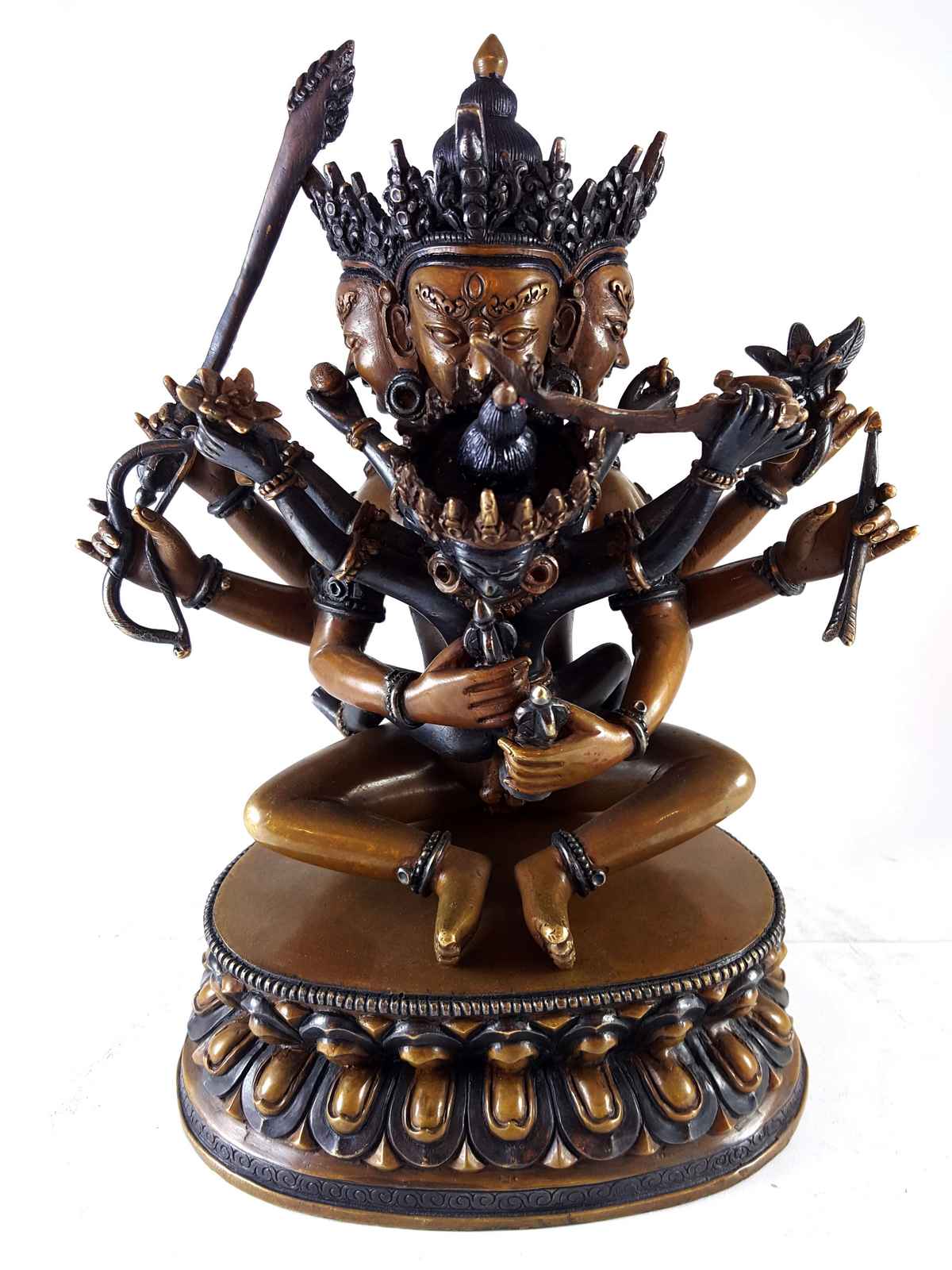 Master Quality Statue
Master Quality Statue 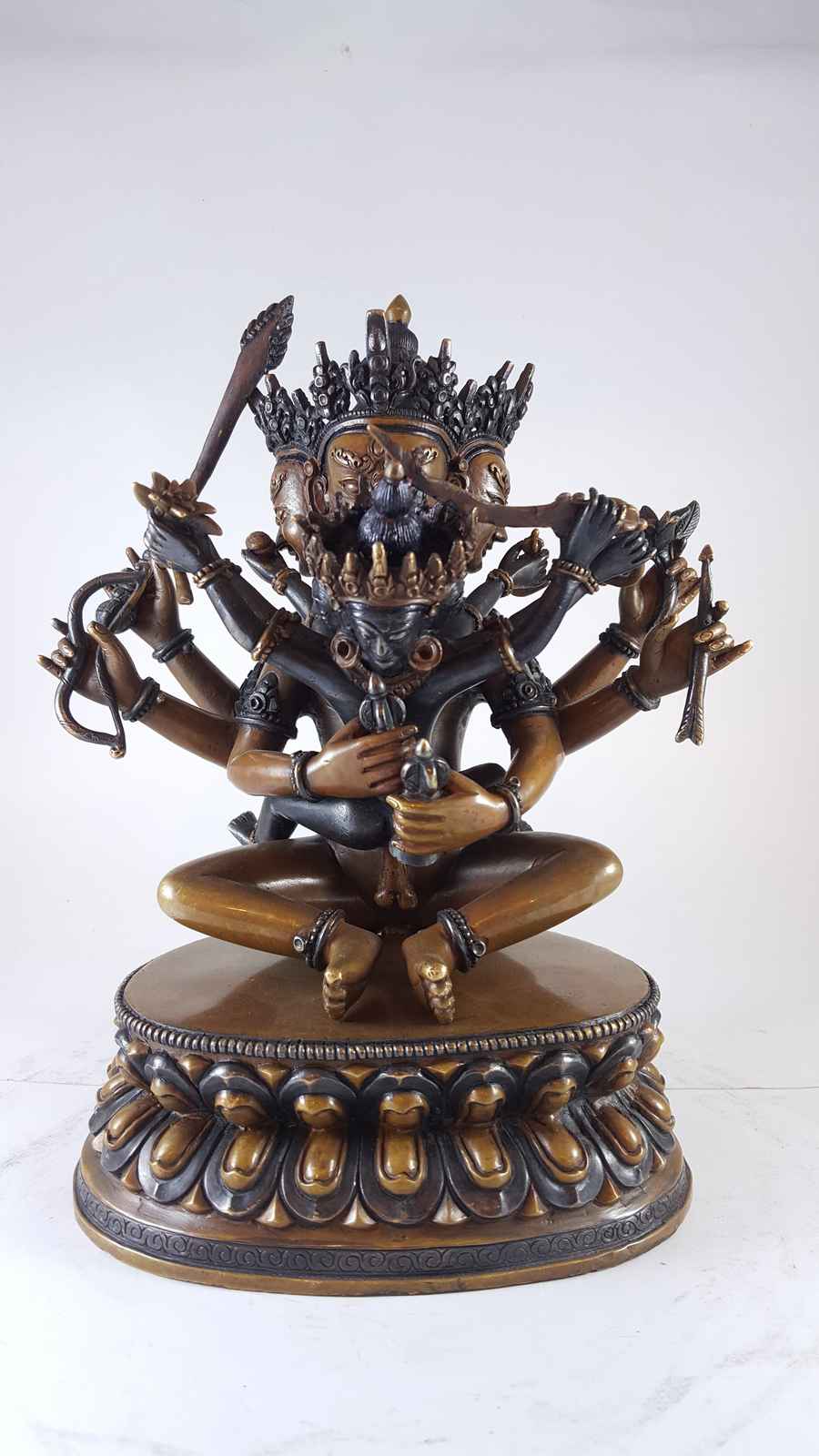 Master Quality Statue
Master Quality Statue  of Guhyasamaja
of Guhyasamaja 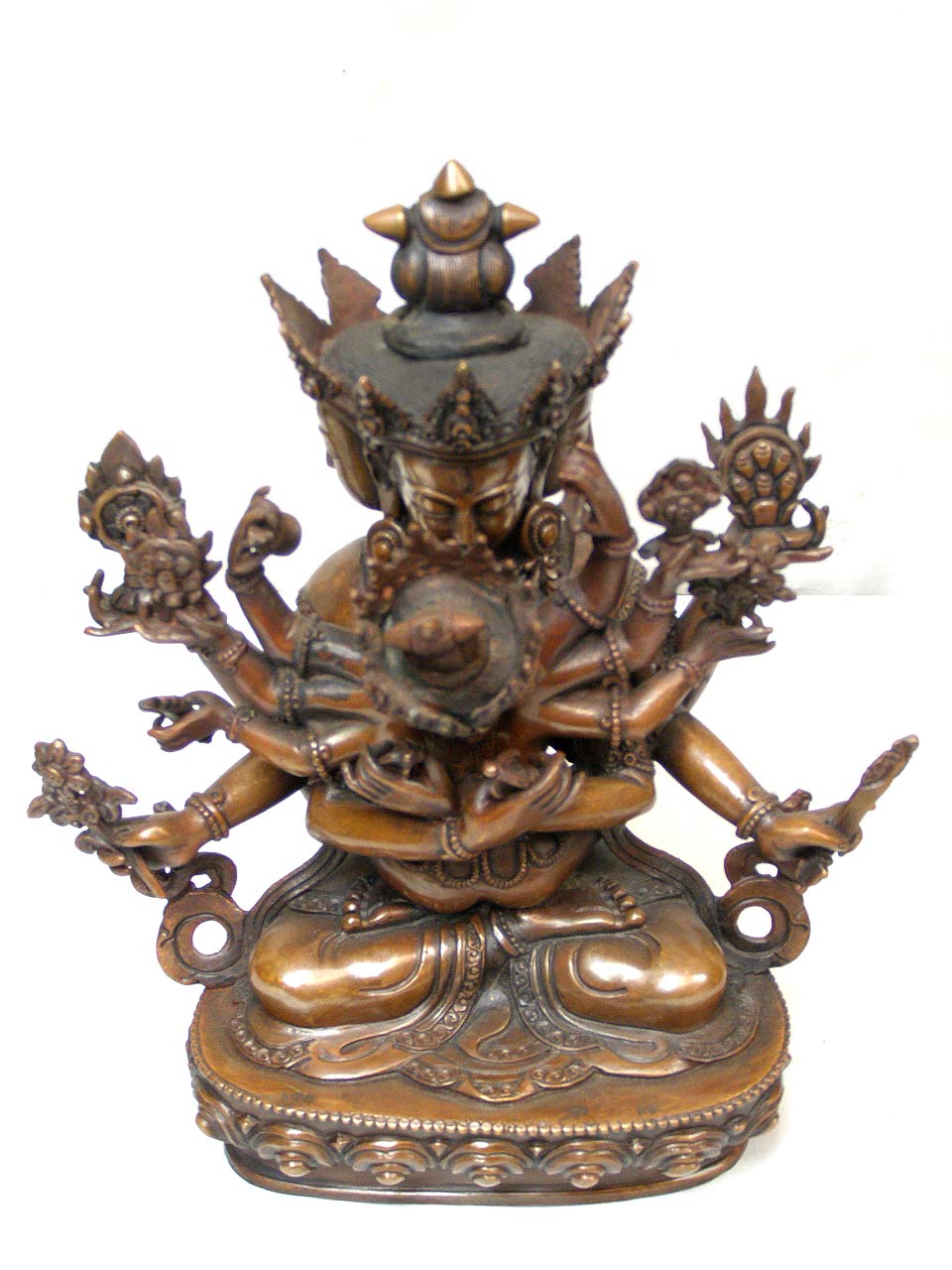 of Guhyasamaja
of Guhyasamaja 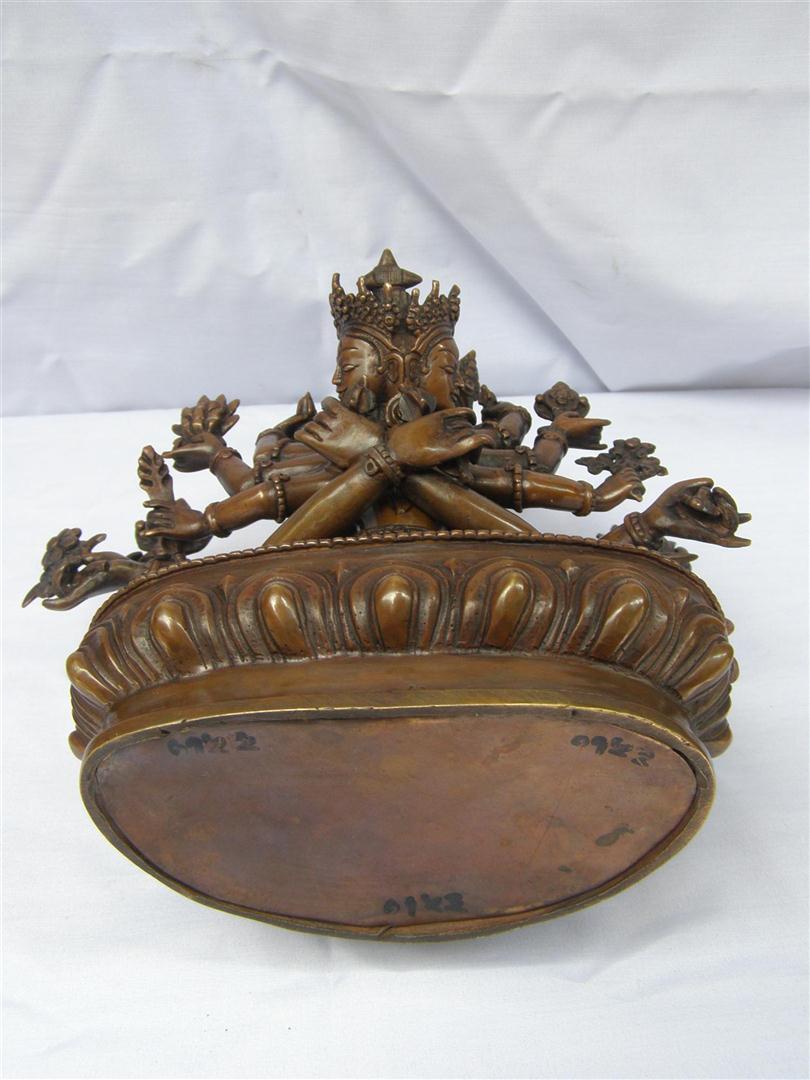 of Guhyasamaja
of Guhyasamaja 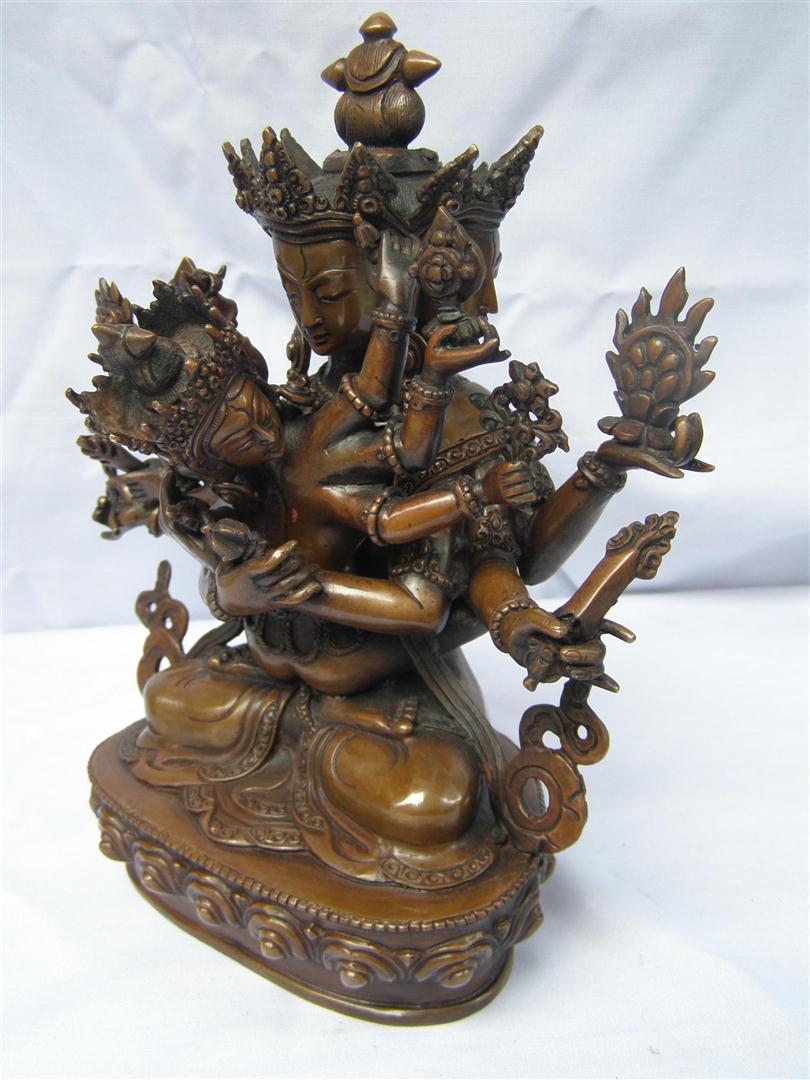 of Guhyasamaja
of Guhyasamaja  Full Gold Plated
Full Gold Plated 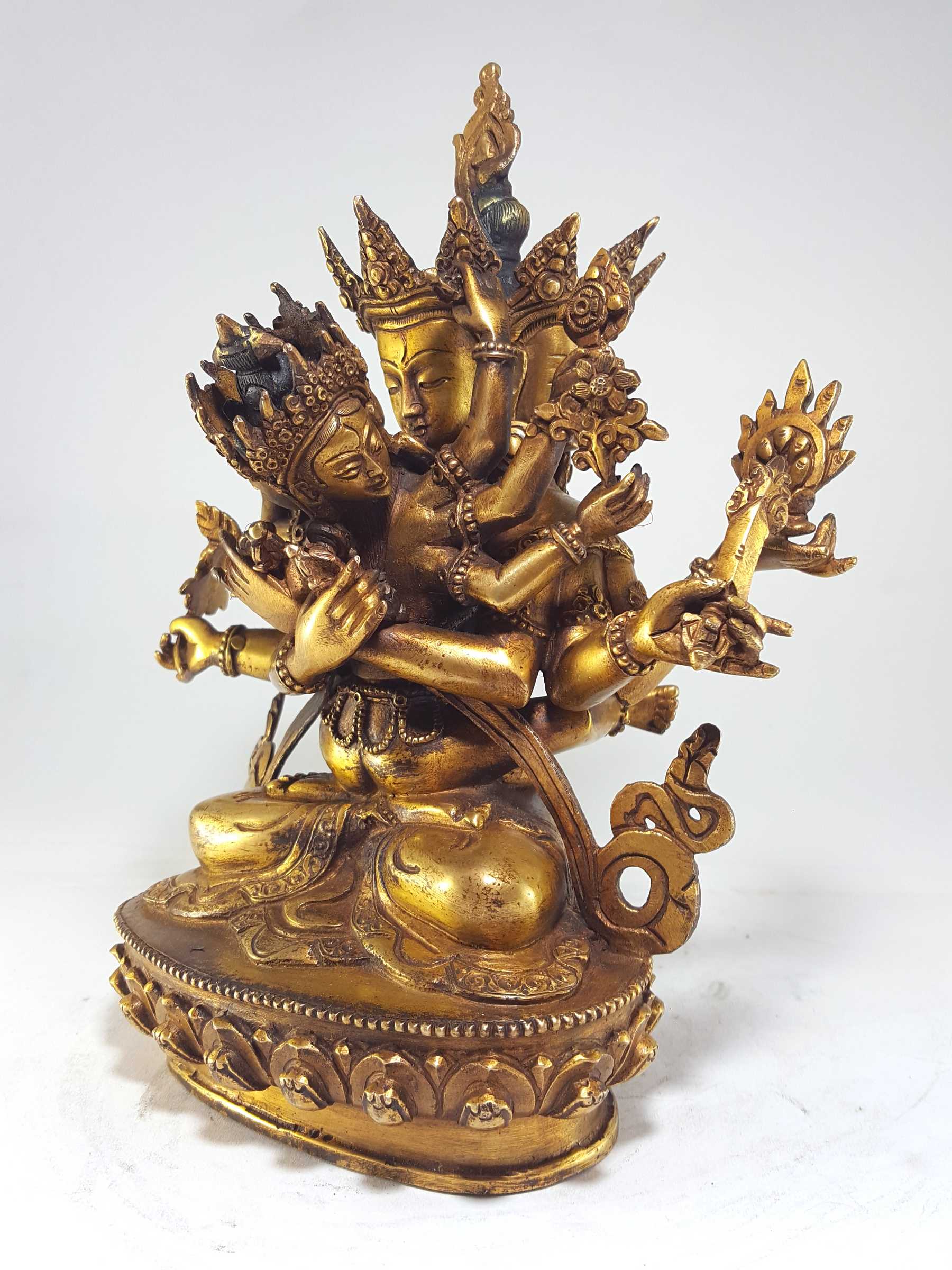 Full Gold Plated
Full Gold Plated 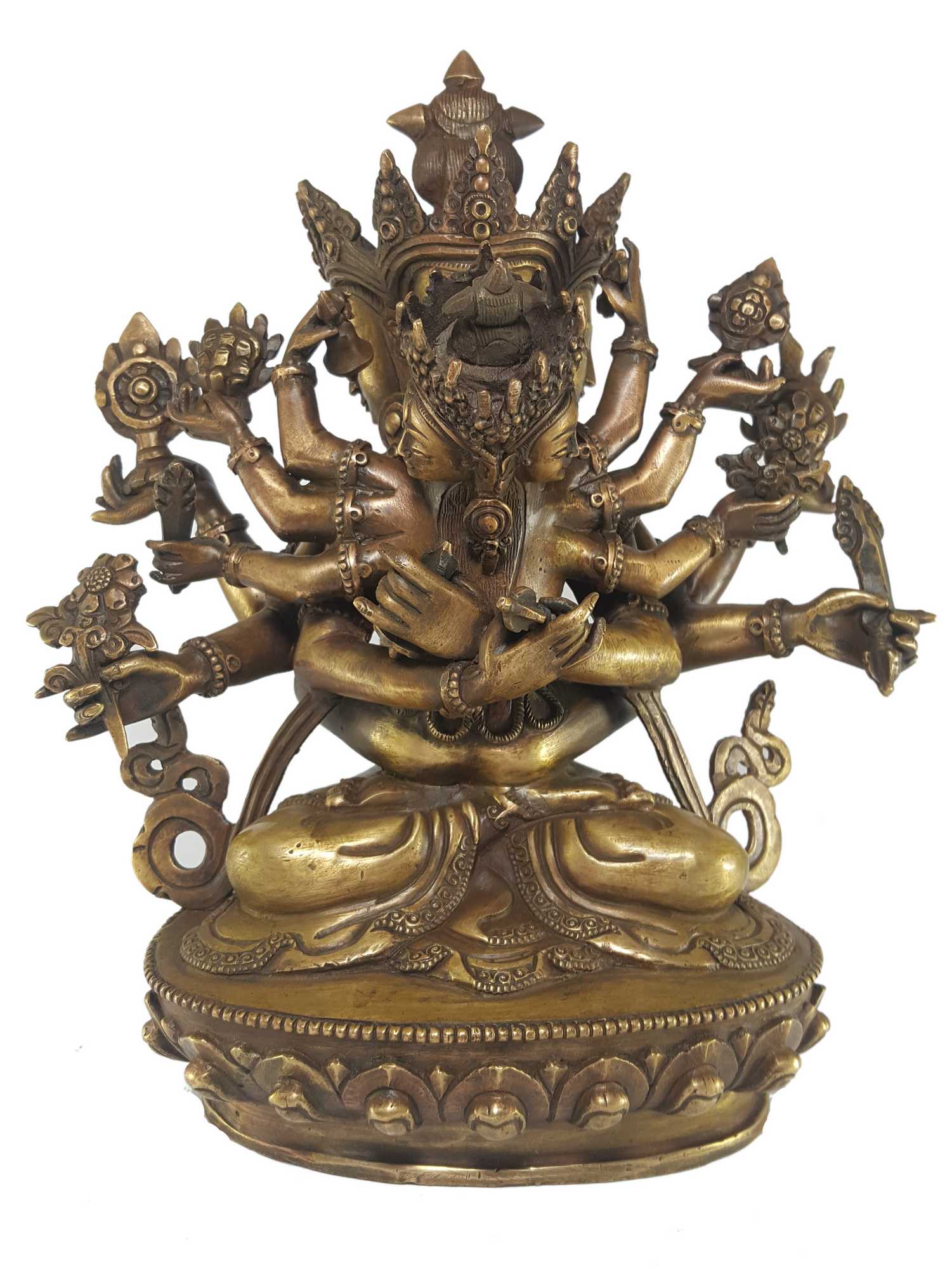 of Guhyasamaja,
of Guhyasamaja, 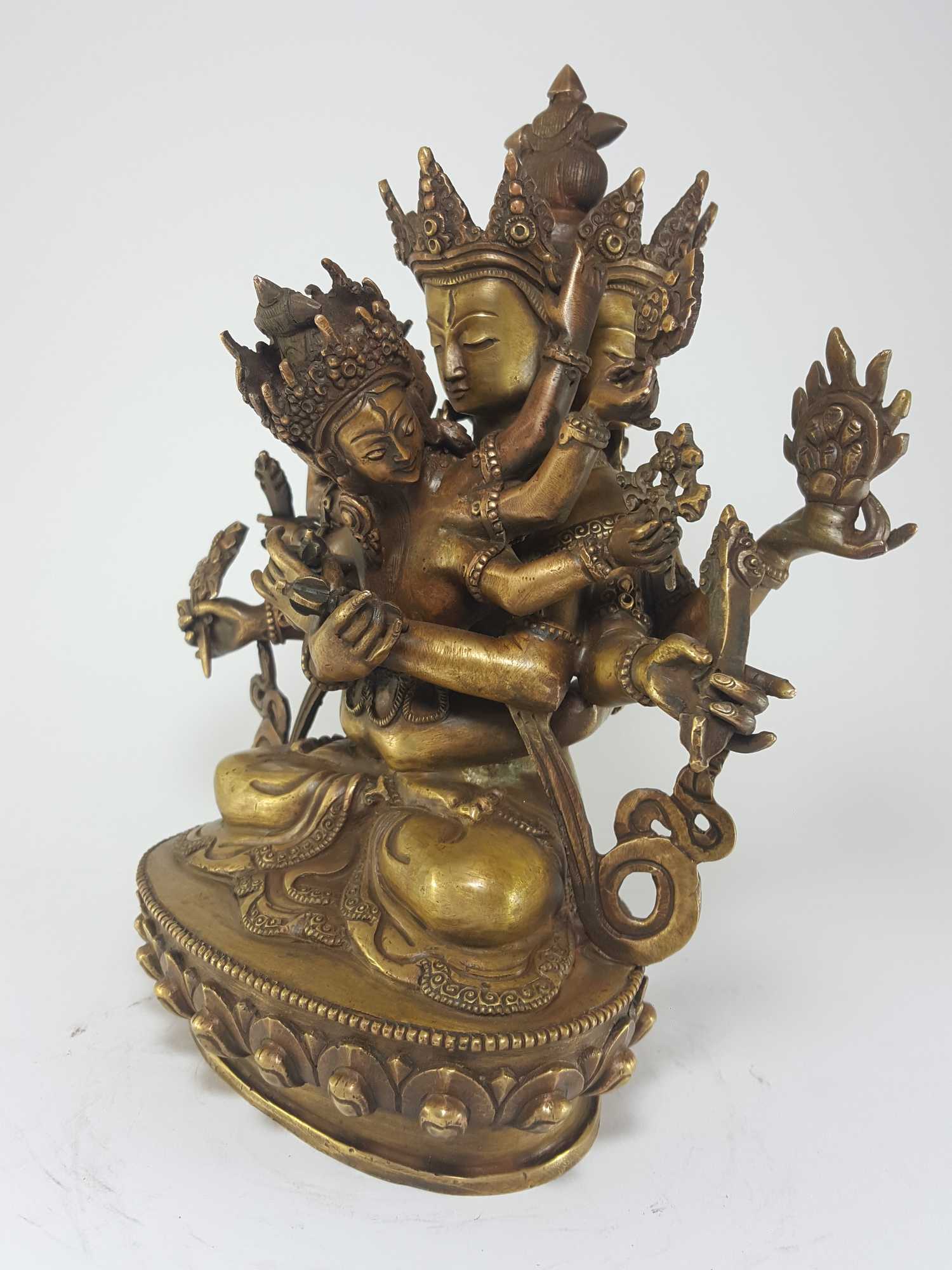 of Guhyasamaja,
of Guhyasamaja,  of Guhaysamjha, In
of Guhaysamjha, In 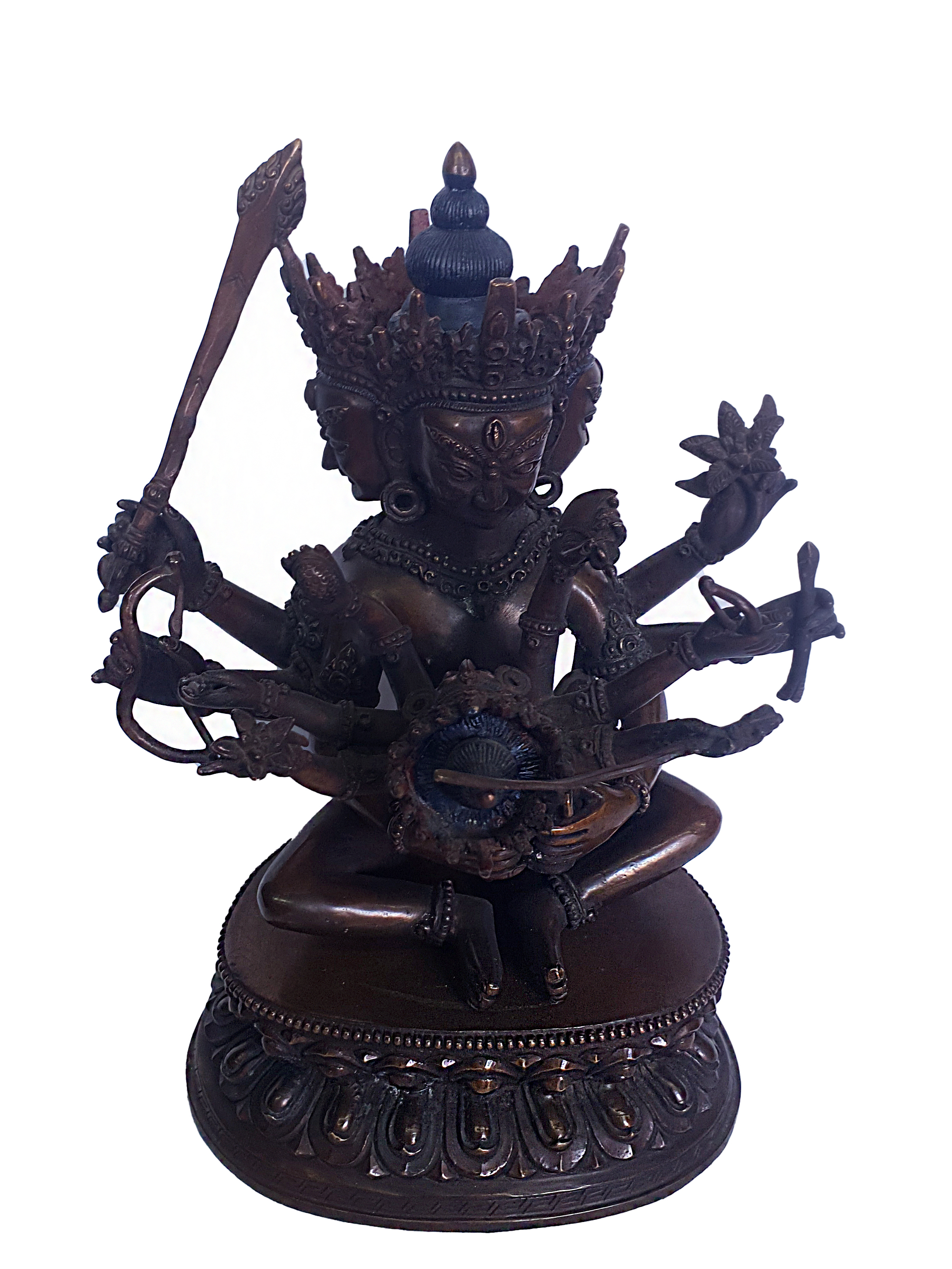 of Guhaysamjha, In
of Guhaysamjha, In 